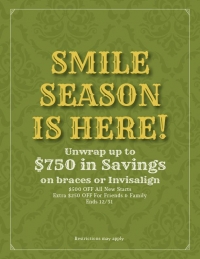Bruxism
Bruxism is one of the most common known sleep disorders and causes most damage during sleep hours. It is an Oral para-functional activity which occurs in most humans at some point in there lives. Some main characteristics of this condition would be the grinding of teeth and the clenching of the jaw. This can occur both during the day and night. This happens when the reflex nerve control center in the brain turns off and the reflex pathways become active during sleeping hours and at times even during naps.
When your front 6 upper and lower teeth (incisors and canines) grind against each other, it puts a strain on the medial Pterygoid muscles and the temporomandibular joints. Earache, depression, headaches, eating disorders and anxiety are amongst the most common symptoms of Bruxism. This is often accompanied by chronic stress, Alzheimer's disease and alcohol abuse.
Many times Bruxism is either misdiagnosed or even not diagnosed at all. This is also considered to be one of the several potential causes of tooth wear. Only a trained professional can tell the difference between wear caused by aggressive brushing, acidic soft drinks, abrasive foods or actual Bruxism wear.
Reasons for treatment
Gum recession and tooth loss: Bruxism is one of the leading causes of gum recession and tooth loss; firstly because it damaged the soft tissue directly, and secondly because it leads to loose teeth and deep pockets where bacteria can colonize and destroy the supporting bone.
Occlusal trauma: The abnormal wear patterns on the occlusal (chewing)surfaces can lead to fractures in the teeth, which may require restorative treatment.
Arthritis: Bruxism can lead to painful arthritis in the TMJ (temporomandibular) joints in severe and chronic cases.
Myofascial pain - The grinding associated with bruxism can eventually shorten and blunt the teeth. This can lead to muscle pain in the myofascial region and debilitating headaches.
Treatment Options for bruxism
There are several helpful devises and tools that are available to help bruxism. Some being the following:
•Mouthguard's - An acrylic mouthguard can be designed from impressions to minimize the abrasive action of the tooth surfaces during normal sleep. Mouthguard's should be worn on a long-term basis to help prevent tooth damage, damage to the temporomandibular joint and help to stabilize the occlusion.
•NTI-tss device - This device only covers the front teeth and is fitted by a health professional. This device will prevent the grinding of the rear molars by limiting the contraction of the temporails muscle.
•Botox - This is an excellent treatment for bruxism. This will weaken the muscle just enough to prevent the grinding. However, this will not effect typical everyday functions such as chewing and speaking. The Botox will basically relax and weaken the muscles.
There are also other methods that can be implemented when the bruxism is under control. If you have any questions, please ask us!





























